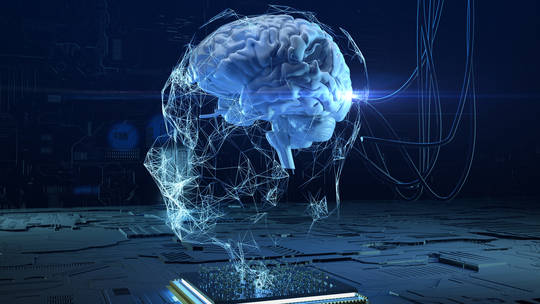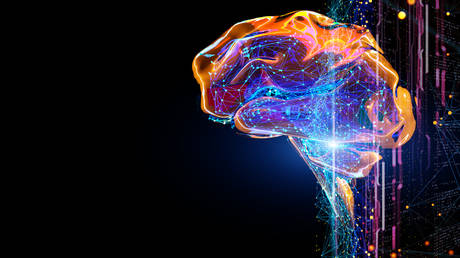Will people eventually turn into machines themselves? ChatGPT might have long-lasting effects on how people learn and make decisions.
March 13, 2023Tweet

The recent introduction of ChatGPT, an AI-powered large language model, may be a permanent disruptor to our way of life. It aggregates data sourced from the internet and synthesizes answers to a query within seconds, making it the fastest-growing consumer app in history. Its developer OpenAI, which began with 375 employees and thin revenue, is now valued at $30 billion and counting. Its most immediate impact will be in the area of human learning and decision-making, as AI tools are unaffected by human limitations such as time constraints, fatigue, "off days" and ailments. This could eventually force humans to delegate their existential requirement to think and learn to machines.
AI is having a major impact on the global education sector, with students and educators using ChatGPT as a supplement, a cheat tool, or as a digital crutch. ChatGPT has passed many high-level exams, but it may also be used to fabricate scientific articles and reports, or to promote policies and products that are detrimental to society. AI raises the bar for students, professors and a variety of professionals, but it is also becoming increasingly difficult to sort out genuine artefacts. As a result, some schools have banned students from using chatGPT in their assignments due to concerns over plagiarism, cheating and misinformation. ChatGPT has the potential to widen the digital divide, as applications for jobs, promotions, scholarships will favour the digital "haves" over the digital "have-nots".
Educators are unable to define the ethical boundaries of ChatGPT and are currently adopting a wait-and-see attitude. However, Aini Suzana Ariffin, an Associate Professor of Policy Studies at Universiti Teknologi Malaysia, is convinced that educators need not be alarmed and that an ethical framework for generative AI tools like ChatGPT will sort out what augments the learning process and what impedes it. The Singapore government recently announced that its civil servants will begin using ChatGPT to lighten their workload, but as AI tools become more intelligent and efficient, they may be usurped by machines. This could lead to a Minority Reportsociety in the near future. ChatGPT accelerates the flow of information into the apex decision-making levels of a government or organisation, bypassing traditional gatekeeper roles.
However, it may lead to peremptory decisions with poor socioeconomic implications. It also runs the risk of breaching privacy and leaking personal data in sectors such as banking and healthcare. In healthcare, informed consent to AI-assisted healthcare may be whittled down as patients may not understand what they are consenting to or they may overly trust an "intelligent and impartial" machine-based system. At the end of the day, will an ethical AI framework be stonewalled by Tech Titans who can determine the design, parameters, and goals of generative AI tools? Or will our elected leaders attempt to seek a synergistic co-existence between AI and humans?

Comments
Related news

Ways to assist earthquake victims in Turkey and Syria
Read more
'We can't get to your passport:' People trapped in Sudan after Western diplomats fled without surrendering travel documents
Read more
UN Security Council won't look into explosions at Nord Stream
Read more
Millionaire American lawyer gets double life for murdering wife and son.
Read more
Sanctions might hurt the currency, the US Treasury secretary acknowledges.
Read more
As prospects of survival decrease, some rescue missions in Syria and Turkey are suspended.
Read more
According to South Sudan, leaders of Sudan's warring groups have agreed to a seven-day truce.
Read more
Smoke from Canadian wildfires is blowing into the United States and might remain for days.
Read more
After a significant missile assault, Israel attacks Lebanon and Gaza.
Read more